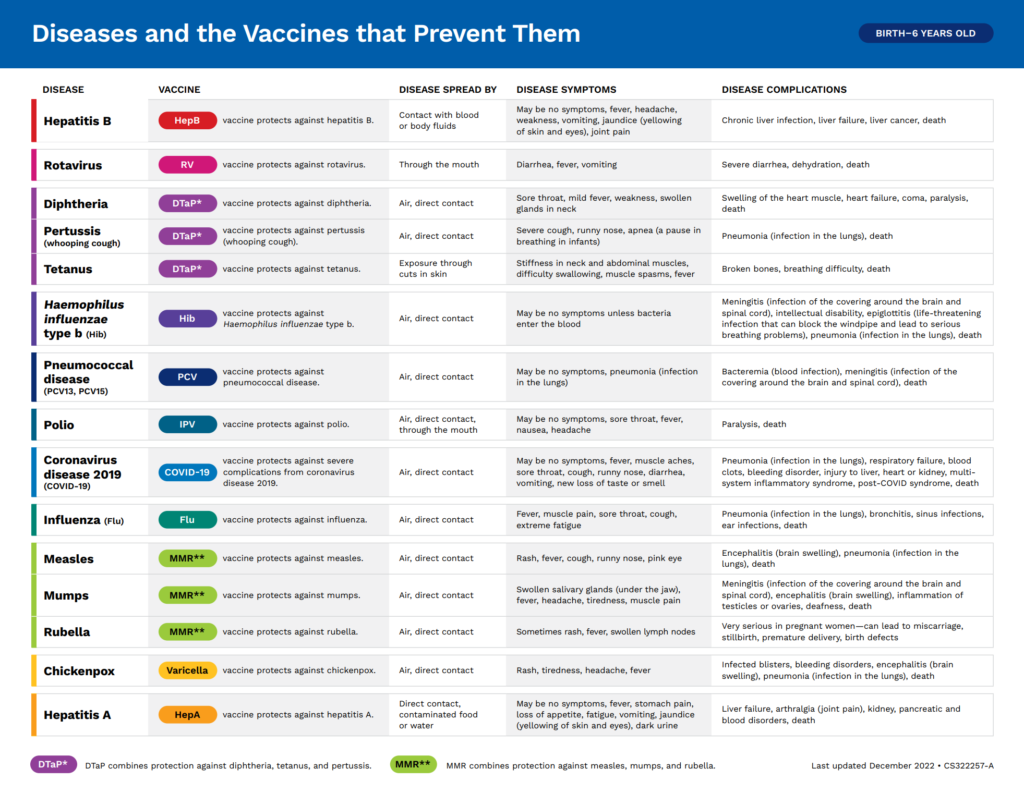
What are immunizations?
An immunization refers to the actual process of how a person gains some immunity through a vaccination. An immunization is the action. Immunization and vaccination are often used to mean the same thing.
What is a vaccine?
A vaccine triggers the body’s immune system against a specific disease. It is usually administrated though a needle but can be a pill or nasal spray.
What does it mean to be immune to a disease?
Immunity is developed through antibodies. Antibodies are produced by your body to fight a toxin or disease. Antibodies are specific to only 1 disease.
In some cases, you may have been immunized but still get sick. This is usually referred to as “breakthrough” cases. Breakthrough cases are more common with short acting immunity.
Are there different types of immunity?
Active immunity: exposure to the disease that results in the body producing antibodies. This could be “natural” exposure, meaning you actually got sick with the disease.
“Vaccine-induced” exposure means you get a dead or weak form of the disease through immunization. With active immunity, your body produces the antibodies.
Active immunity lasts a long time. In some cases, active immunity can last a lifetime. Sometimes multiple vaccines are needed to build up immunity. It may take multiple weeks for immunity to develop after vaccination.
Passive immunity: when the antibodies are used in a vaccine instead of the actual disease. For example, a newborn baby gets passive immunity for some diseases through the mother’s placenta. Passive immunity is short lasting and begin immediately.
Some vaccines are recommended for pregnant women, even if she has already been vaccinated, in order to provide more antibodies to the baby.
You can learn more about vaccines and immunization here.
